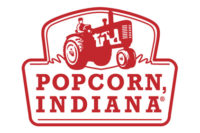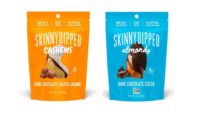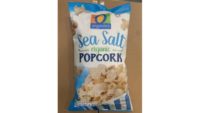Sunland Inc., which sells its nuts and nut butters to large groceries and other food distributors around the country, has expanded its recall to products under multiple brand names. The New Mexico-based company's recall includes some nut butters and nut products sold at Safeway, Harry and David, Sprouts, Heinen's, Stop & Shop Supermarket Co., Giant Food of Landover, Md., and several other stores.
The recall includes 101 products, including cashew butters, tahini and blanched and roasted peanut products. Several retailers have issued additional recalls for items made with Sunland ingredients. Some of those retailers used those ingredients in items they prepared and packaged themselves.
Some of the brand names included in the recall are Target's Archer Farms, Safeway's Open Nature, Earth Balance, Fresh & Easy, Late July, Heinen's, Joseph's, Natural Value, Naturally More, Peanut Power Butter, Serious Food, Snaclite Power, Sprouts Farmers Market, Sprouts, Sunland and Dogsbutter.
In September, salmonella illnesses were linked to Trader Joe's Creamy Salted Valencia Peanut Butter, one of the brands Sunland manufactures. The federal Centers for Disease Control and Prevention said there are now 30 salmonella illnesses in 19 states that can be traced to the Trader Joe's peanut butter.
Meanwhile, CBS News recently reported that customers are requested to return certain popcorn products made by Popcorn, Indiana for a refund or to throw the popcorn away. The popcorn was sold in a range of locations such as retailers, distributor centers and online. Contamination in the popcorn was identified following testing by the company. The New Jersey-based organization noted that the contamination results from Listeria monocytogenes, an organism that leads to serious and possibly deathly infection for the elderly, young children or those with a weak immune system.
Packed in red bags, the products that were possibly infected had sell-by dates between Feb. 4, 2013 to March 12, 2013. “Nothing is more important to us than the health and safety of those who buy our popcorn and the employees who make up our company,” states Popcorn, Indiana’s website regarding the removal of the popcorn product. “We hold ourselves to standards that are among the highest in the industry, and as such, we regularly conduct testing beyond FDA requirements.”
Source: www.abclocal.go.com, www.redorbit.com




